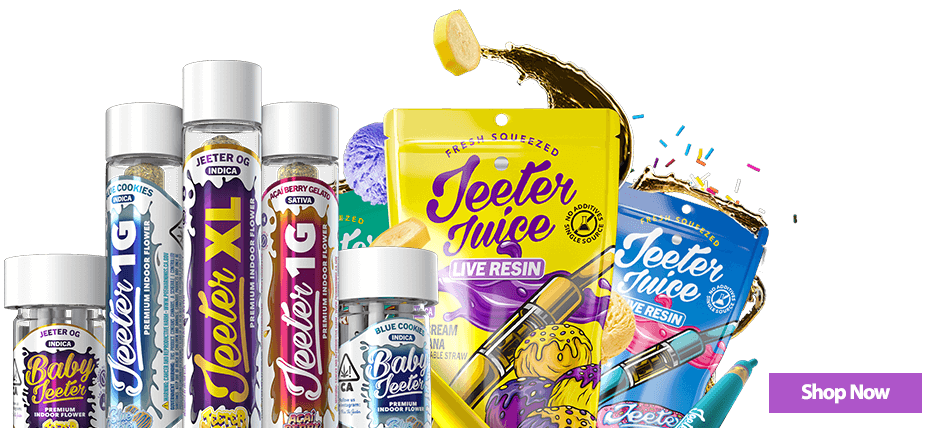CBD
CBD products are becoming increasingly popular in the beauty industry. CBD can be found in creams, balms, lotions and serums. CBD is a natural substance extracted from hemp plants and it is also known as Cannabidiol. It does not contain THC which is the psychoactive component of cannabis.
It has been shown to have anti-inflammatory properties and it has been used for treating pain, nausea and anxiety disorders. CBD products have been available for years but they have only recently gained popularity in the United States due to its versatility and availability.
Shop for the best CBD brands on Weedbates!
What Exactly Is CBD?
Cannabinoids act on their intended target, which is the endocannabinoid system. Cannabidiol, sometimes referred to as CBD, is one of more than a hundred different cannabinoids that may be found in hemp. One of the purported advantages of CBD is a reduction in inflammation and the perception of pain, in addition to a calming effect. In contrast to THC, CBD does not induce human psychoactive effects.
CBD and THC are two entirely distinct molecules, even though they originate from the cannabis plant. Tetrahydrocannabinol, or THC, is another cannabinoid in cannabis and is responsible for the sensation of being "high." Many different strains of cannabis include THC.
While CBD might be something you regularly use, many of you will likely need clarification about what exactly it is. The fact that cannabidiol (CBD) oil may be purchased in stores is evidence that CBD alone does not contravene any laws. Examples of the numerous specialized systems that make up the human body and work together to maintain homeostasis are the digestive, respiratory, and immune systems. These three systems are only some of the many that make up the human body.
The endocannabinoid system, also known as the ECS, is present in all vertebrates. This system comprises specialized receptors and substances known as ligands that bind to the receptors and activate them. These receptors are known by their respective acronyms, CB1 and CB2 receptors. Because of its extensive distribution throughout the body, the ECS can influence a great deal of diversity in terms of the systems and processes it controls.
%20(1).jpg?1672354924928)
In recent years, cannabidiol (CBD) has received significant interest from the scientific community and the media. Because CBD is a cannabinoid, it has the potential to affect the cannabinoid system that is already present in the body. You may take advantage of it by purchasing any CBD products from the extensive online selection. Although CBD oil is still considered the gold standard, various options exist based on the individual's requirements and interests.
The public conversation on cannabis and CBD has also been redirected due to substantial new research on these subjects. CBD has quickly emerged as one of the most important compounds found in cannabis plants. In contrast to THC, cannabidiol, or CBD, is gaining favor because it may have some beneficial effects and does not include any of the following contentious components of cannabis. CBD does not have any of these effects, in contrast to its "evil" twin, THC, which can cause intoxication, weight gain, and other unpleasant side effects.
Cannabis contains a wide variety of cannabinoids, the most well-known of which are Cannabigerol (CBG), Cannabinol (CBN), and Cannabichromene (CBC). These two less well-known cannabinoids have received even less attention than CBD and THC, even though preliminary discoveries are still within the domain of introductory study.
How Much Cannabinoid Is There?
CBD and THC are the cannabinoids that have gained the most significant public attention in recent years. Almost everyone, regardless of whether or not they have tried cannabis or CBD products, has at least heard about CBD products and cannabis. Cannabinoids aren't the only type of chemical compound, though. There are more than a hundred distinct cannabinoids, according to some sources. There have been sightings of over sixty, but it can now not provide an accurate count.
What Role Do Cannabinoids Play In The Body?
Cannabinoids have varying impacts on different people depending on the individual. Cannabinoid receptors might, in principle, be found in a wide variety of locations throughout the body. In addition, they can be located in many organs, each of which is accountable for a different process within the body. In contrast to CB2 receptors, mostly found on cells of the immune system, CB1 receptors are found in high concentrations in the brain and other parts of the central nervous system.
Coordinating several physiological processes throughout the body contributes to the upkeep of homeostasis. The endocannabinoid system is sometimes referred to as the unofficial nerve center of the body. Cannabinoids can exert their effect on various processes and systems because they can activate cannabinoid receptors. Some examples of this include the experience of chronic pain, emotions, hunger, temperature, immunity, and neurological functions.
CBD Products
Most CBD products available on the market today come in the form of CBD oil, which can be purchased in various concentrations depending on your needs. A dropper is used to administer an extract of the hemp plant that has been diluted in a carrier oil. This extract is placed under the tongue (usually high-quality hemp oil).
Cannabidiol, often known as CBD, is a compound found in cannabis that is thought to have similar positive benefits on the body and mind of animals as it does in people. CBD capsules are an excellent alternative to CBD oil, mainly if the flavor of CBD oil is off-putting to you. Various dose levels are available, and the active component is spread out evenly throughout the carrier material. According to the testimonies, giving the extract to animals in the form of CBD drops, personalized treats or pellets may help ease their discomfort and anxiety and can also assist in treating skin disorders.
CBD use in the production of cosmetics and ointments is becoming increasingly common among businesses. CBD creams can be absorbed via the skin due to cannabinoid receptors in the skin. Consequently, those with skin diseases such as acne and psoriasis are highly recommended to use the products in question.
The refreshing and calming effects of balms derived from natural hemp essential extract with CBD concentrations of 12 percent are brought about by their composition. Both unrefined organic beeswax and soybean oil are used as the primary components of the care items. Because it has a high percentage of unsaturated fatty acids, the organic hemp seed oil that is included in the balms is helpful for various skin ailments, including psoriasis, dryness, and the signs of aging.
CBD fruit chews and beverages containing CBD are two common ways that CBD may be consumed, and both of these methods can potentially supply the body with the active component CBD throughout the day. Because of the high CBD concentration and adaptability of CBD crystals, most users who purchase them are seasoned cannabis consumers. Like CBD oil, the crystals may be vaporized, breathed, or taken sublingually. This makes them very comparable to CBD oil.
.jpg?1672354971113)
Hemp is an excellent source of several essential nutrients, including vitamins and minerals, fiber, protein, and fatty acids. Cannabinoids, flavonoids, terpenes, cannabigerol, and cannabichromene have all been shown to be present in the plant, according to several different scientific investigations (CBC). Cannabidiol, often known as CBD, is one of more than a hundred cannabinoids extracted from hemp. CBD has shown encouraging benefits in therapeutic research.
The general idea that hemp extract contains medicinal characteristics may help to explain the recent uptick in interest in cannabidiol (CBD), which stands for cannabidiol. Ongoing research on the mechanism of action of cannabidiol (CBD) because CBD does not result in any feeling of intoxication. It can be used anytime without fear of negative consequences. Cannabidiol has been shown in a few trials to have antispasmodic properties, and there is a good chance that these effects are risk-free.
The possibility of a beneficial influence on one's health or clinical picture appeals to those in good condition and those who are not. This is one reason why substances like cannabis are so widely used. So, it has been used to treat spasms in patients with multiple sclerosis and children with rare epilepsy.
What Are The Variations Between Cannabinoids?
One of the most important distinctions is that various cannabinoids all have varying degrees of psychoactivity. There is no psychoactive effect associated with CBD, CBC, or CBG. Though, things take on a somewhat different tone regarding THC. CBN, on the other hand, possesses just a fraction of THC's psychoactivity. A parallel comparison has been made between CBDL and the latter. This indicates that certain cannabinoids could be responsible for intoxication.
CBD and THC, two cannabinoids found in cannabis, have emerged as the frontrunners in both public interest and academic investigation. The fact that CBD may, under certain circumstances, be able to mitigate the effects of THC's high is an intriguing possibility. However, the amount of cannabis you consume will affect not just these effects but also others.
What Is The Difference Between CBD, Cannabis, Marijuana, And Hashish?
In the first place, the term cannabis may just be used to refer to the plant known as hemp (Cannabis sativa L.). It is possible to produce "medical cannabis" by cultivating cannabis. The drug can be sold legally in pharmacies to patients with a valid prescription if this is accomplished. The THC concentration of medicinal marijuana is often more significant than that of recreational marijuana.
The terms "weed" and "cannabis" can sometimes be used interchangeably to refer to illegally produced cannabis plants containing high concentrations of THC. There is a possibility that the resin droplets that the plant expels as it nears the conclusion of its growth contain the highest concentration of cannabinoids. When this resin is collected and then crushed, the resulting substance is called hashish.
%20(1).jpg?1672355010471)
Even though there are fewer limitations on cultivating plants with 0.3% THC or less than there are on producing THC-rich cultivars, "professional" producers are the only ones allowed to grow these plants. These terms refer to the same plant cultivated in the open air and go by commercial hemp, industrial hemp, and fiber hemp. After then, different products containing CBD are derived from those variations.
Is there a significant difference between cannabis and hemp, or may one term be used instead of the other? Both! The context in which the question was posed is a significant factor in determining whether or not this is accurate. One kind of plant, Cannabis sativa L., is responsible for producing all hemp. Regardless, plants with low amounts of THC are referred to as "hemp," whereas those with high levels of THC are referred to as "cannabis."
What Is CBD Extract?
Cannabidiol (also known as CBD) extract is any substance extracted from the cannabis plant and contains a high concentration of CBD. Extracting CBD is one way to obtain it in its most unadulterated form. The word "CBD extract" has to be distinguished from the more general "cannabis extract." CBD content ranges from 30% to 50%, depending on the extraction method and whether or not it was concentrated further.
The phrase "CBD concentrate" is frequently employed in discussions like these. Although pure CBD extract is available, most individuals use CBD oil instead. In this instance, oil is combined with CBD extract after diluting the latter in the opposite direction.
In contrast, the word "cannabis extract" may be used to designate a broad variety of various extracts from cannabis plants, not simply those having a high concentration of the psychoactive compound THC. So, the word "cannabis extract" has a less strict definition, and it is recommended that further study be conducted on goods that include "cannabis extract." To get the truth straight, hashish is the most ancient form of cannabis concentrate that you possess. The increased synthesis of trichomes on female cannabis plants results in the formation of resin heads, which are often manually taken from the plant. All of the things are compiled, then arranged, and finally packaged.
What Effects Does CBD Have?
Epilepsy
The possibility that CBD might be beneficial in treating epilepsy has received much attention in the media. In addition to traditional medicine, cannabidiol (CBD) is now being investigated as a potentially effective therapeutic option, particularly for treating uncommon and frequently resistant types of epilepsy such as Lennox-Gastaut syndrome and Dravet syndrome. Research into a variety of epilepsy subtypes, as well as generalized seizure disorders activity, has shown some promising findings as well.
Disorders Of Anxiety And Stress
CBD was helpful in a model of acute stress in the laboratory to lower anxiety. However, getting the dosage properly is also essential! Thus, the investigation discovered that a moderate dosage of CBD (300 mg) significantly reduced stress levels. Still, a low or a high dosage had no effect and may have even increased stress levels.
Skincare
The scientific community has demonstrated that an endocannabinoid system is located in the skin. It is hypothesized that this has a significant impact on the physiological control of the skin. On the other hand, many skin illnesses have been connected to disturbances in this system. Thus, the ECS's modulatory potential has been suggested as a therapeutic target for skin diseases.
Pain
Cannabis has been used for therapeutic purposes for thousands of years, and people from various cultures have known its potential advantages for quite some time. This impact of CBD has been demonstrated in the past, and in one particular trial, CBD cream significantly decreased neuropathic pain while also being well tolerated by the participants.
Historical Overview
People have been turning to cannabis for religious, spiritual, and medical purposes even since before the time of Christ. Approximately seven thousand years ago, in what is now Central Asia, hemp was one of the first plants to be grown intentionally. Its primary purpose in terms of planting was the manufacture of fibers (including those used in creating textiles, ropes, and paper).
In their works, Paracelsus and Hildegard of Bingen both emphasized the therapeutic possibilities of hemp. The prohibition of hemp in the United States did not take effect until the very last days before the start of World War I. To this day, several nations make it illegal to cultivate, sell, manufacture, import, export, distribute, acquire, and even own hemp cultivars with THC percentages of 0.3% or above. This includes importing, exporting, distributing, developing, and even holding.
Hemp saw a resurgence as a commercially viable plant in the 1990s due to selective breeding that reduced its THC content to less than 0.3 percent. The modern scientific inquiry into the ingredients of cannabis has generated valuable insights, which are helping to erase the old perception of the plant as a drug factory. This plant is not a cure-all, but it can potentially significantly enhance the standard medical therapy that is now available.
Hemp Is A Plant That Has A Wide Range Of Applications
Because it is so hardy and versatile, the hemp plant can thrive in virtually any environment and may be cultivated on all seven continents. Hemp is a dioecious plant, which means that it possesses both male and female reproductive organs. The production of fiber and food for animals is best accomplished by male plants that are allowed to grow to a greater height. Female plants are characterized by their large, resinous blooms, which house the plant's reproductive organs and ultimately result in the development of seeds.
.jpg?1672355108203)
Cannabinoids are present in the plant's resin, like in its leaves and flowers. These cannabinoids include THC, CBD, CBC, and others. Extraction with carbon dioxide is the method that is used to generate CBD hemp extract. The native hemp seed oil, which may be produced from the seeds by pressing them, contains a modest concentration of CBD but a high volume of other fatty components and beneficial unsaturated fatty acids.
CBD Hemp Extract
Thousands of different chemicals can be found in the hemp plant. Some of these chemicals include over 100 additional cannabinoids, over 200 terpenes (essential oils), flavonoids and phenols, secondary plant compounds, proteins (amino acids), carbohydrates, alcohols, vitamins, and fatty acids. Cannabinoids are an essential component of the medicinal value of cannabis. CBD, one of the numerous beneficial chemicals that can be extracted from hemp, has become the component that has received the most attention.
How CBD's Potential Impact Evolves
The primary component of hemp is currently being marketed to customers as a panacea-like miracle medicine. After consuming CBD, many people say they feel better, and many others are interested in hearing about these anecdotal reports. Scientific studies are progressively substantiating positive impacts supported by user testimonies. Cannabidiol (CBD) is a compound found in cannabis that has been speculated to have the ability to increase an individual's sense of well-being and give treatment for a variety of ailments.
The Action Mechanism: How Does CBDa Become CBD?
The CBD carboxylic acid, also known as CBDa (where it stands for the English word acid), is the first cannabidiol to emerge in the cannabis plant. However, it does not yet possess all of the properties associated with cannabidiol. Cannabidiolic acid contains a molecule of carbon dioxide connected to it, and the only way to remove this molecule is by activating the synthesis of CBD with increased functional strength. Heating is required for the chemical process known as activation, also known as decarboxylation.
If the decarboxylation process is not completed correctly, CBD acid may be left behind, resulting in effects occurring unexpectedly quickly. At this point, the most plausible explanation for CBD's action is that it can alter the human endocannabinoid system, either favorably or unfavorably. The same fundamental idea applies to the way that other cannabinoids, such as tetrahydrocannabinol, have an impact (THC from THCa).
What Are The Expected Consequences Of Cannabidiol When Consumed?
CBD, devoid of psychoactive or intoxicating effects, has been approved for use in the medical field. Customers are increasingly turning to CBD products, which fall under dietary supplements, as a method of reducing pain and reaping the advantages of their alleged medicinal capabilities. CBD products fall into the category of nutritional supplements. Cannabinoids may affect the body because they interact with specific receptors. It has been discovered that CBD possesses qualities that make it anti-inflammatory, as well as analgesic, anti-anxiety, sedative, regulatory, and anti-inflammatory.
Cannabidiol Products: Does It Have Any Effect?
Cannabidiol (CBD), derived from hemp, is currently being promoted as a wonder medication that can potentially treat a wide range of conditions, from anxiety to cancer. However, its worth has not yet been determined at this time. CBD, on the other hand, does not create intoxication like its counterpart, tetrahydrocannabinol (THC), which is present in the hemp plant.
Cannabidiol, or CBD, is a compound found in cannabis that has been hypothesized to boost the therapeutic value of other drugs. There is still a lot of mystery about how exactly cannabidiol (CBD) works in the body. Although there aren't many studies that demonstrate an effect, there have been a lot of favorable comments based on people's personal experiences.
CBD As A Treatment For Epilepsy And Multiple Sclerosis
The therapeutic efficacy of CBD is only believed to be certain about specific types of epilepsy. It is an antiepileptic medication that has received regulatory approval for use in treating the severest types of epilepsy in babies. It has been hypothesized that CBD can influence the calcium levels in neurons. Alterations in liver metabolism might occur as a negative impact of the medication; thus, it is essential to monitor liver measures while on the treatment. Can CBD prevent tumor cell growth?
Animal research suggests that cannabidiol (CBD) may inhibit the progression of some malignancies by targeting cells already present in the body. According to the study's findings, using CBD in chemotherapy increased the amount of time mice survived, from 20 to 22 days. Nevertheless, the investigations are only getting begun. The findings of this research do not apply to the treatment of cancer or the improvement of human health.
Utilizing CBD As An Analgesic
Cannabidiol (CBD), a component of cannabis, has been the subject of research on animals, and those findings suggest that it may be useful in the palliative care of people who are plagued with pain, inability to sleep, anxiety, or depression. However, in order to validate these findings, more investigation is required.
CBD Utilization
Because of the common notion that cannabidiol, or CBD, has analgesic effects, it is frequently given to people who are experiencing pain. CBD has shown promising results in clinical trials for treating neurological diseases, sleeplessness, and anxiety. They suggest that it will help you relax and that, as a result, you will feel better. Because conventional pain medications or other medications can occasionally create significant adverse effects, using CBD oil might potentially improve the number of pain treatment alternatives that are accessible.
.jpg?1672355172863)
Because CBD ointment and cosmetics have been shown to relieve stress on the skin, they are frequently recommended to patients suffering from atopic dermatitis and acne. When it comes to alleviating symptoms of anxiety, sleeplessness, irritability, and depression, an increasing number of individuals are claiming that taking CBD has favorable benefits. Specifically, the high concentration of vitamin E may make the development of skin problems more gradual. In highly unusual circumstances, decreasing the amount of fat in the skin may also enhance the look of the skin.
Is There A Link Between CBD's Mode Of Action And Dosage?
It is generally known that each individual possesses a response time to stimuli or metabolic rate that is entirely unique. Thus, the pace at which one person's body metabolizes a particular substance, such as a meal, medication, or supplement, may be drastically different from the rate at which another person's body metabolizes the same thing. The potential effects of goods containing CBD might also materialize sometime in the distant future.
The amount of CBD present can also vary greatly. There are oils and other products available on the market that contain CBD in concentrations ranging from 0 to 30 percent of the compound. So, it is essential to keep this in mind while using CBD. The efficacy of CBD oil and other products containing CBD can be impacted by various factors, some of which are detailed further down in this article.
- Consider the age of the complainants and the specificity of their issues
- Individual symptoms of preexisting conditions
- What percentage of a person's body weight does the affected person weigh?
- Use frequency and consistency
- Contrary diseases and medications
- Personal genetic proclivities
- Physical and environmental conditions
Because diverse persons and conditions have unique requirements, it is impossible to calculate in advance a single dose that will be beneficial for everyone. Instead, it is up to you, the user, to choose how much CBD, in the form of milligrams (mg), will assist in relieving the symptoms that you are experiencing.
What Exactly Is CBD Oil?
Cannabidiol, or CBD oil, is a chemical isolated from hemp plant leaves and flowers. CBD oil is also known as cannabidiol. CBD does not produce the same euphoric or intoxicating effects when consumed in the same way that THC does.
The quantity of THC that may be detected in these oils ranges from 0.02% to 0.20% on average. Because this is such an exceedingly low proportion, the presence of THC is almost entirely undetectable. The following are the components of CBD oils available for purchase:
- Hemp oil cold pressed
- Cannabidiol
- vitamin E
- Turpentine
- Hemp molecules
CBD oil is an active ingredient that may be found in various CBD products, including topical ointments, lotions, and sublingual CBD drops.
What Percentage Of CBD Oil?
Just like any other dietary supplement, CBD oil yields the finest results when used regularly and over an extended period. The natural extract, in contrast to the synthetic alternatives, has the potential to aid with urgent concerns. The magnitude of the effect is influenced by several factors, one of which is the amount of CBD oil included in the formulation. Finding out how much CBD is contained in a single drop of oil will help ensure that you give the appropriate dose.
- One drop of CBD oil of 5% contains about 1.67 milligrams of CBD.
- A single drop of CBD oil with a concentration of 15% contains approximately 5.01 milligrams of CBD.
- One drop of CBD oil with a concentration of 5% contains approximately 1.67 milligrams of CBD at the very least.
- A single drop of CBD oil diluted to a concentration of 15% contains about 5.01 milligrams of CBD, even if the attention has been reduced.
How Is CBD Taken?
There are many different dosing options available for CBD. The beneficial extract may be consumed in various ways, including lotions, tablets, meals, crystals, e-liquids, and oils, to name just a few examples. One of the most common uses for CBD is oil, which is one of the most convenient ways to consume the substance because the dosage can be modified with relative ease, and it can be used on the move. This particular instance is an excellent illustration of why sublingual delivery is such an effective method:
- Take a minute to stand in front of a mirror
- Take your tongue out of your mouth
- It is suggested that a few drops be placed beneath the tongue
- Please don't breathe for at least a minute and a half
CBD Doses For Animals Must Be Customized
Cannabidiol may elicit a response from other animals, birds, fish, and other species besides humans since the endocannabinoid system (ECS) is not exclusive to humans. Those who favor CBD claim that the component has the same sedative, analgesic, and anti-inflammatory effects on animals as it does on people. When treating animals, it is recommended to begin the dosage gradually.
The majority of CBD oils have concentrations of CBD ranging from 5 to 10 percent, which is the dose range that would be considered acceptable for this particular use. Adjusting the amount of focus to suit one's specific requirements is very doable. As the availability of CBD oil declines, animals typically experience a reduction in their size.
Just one or two drops are sufficient for determining beginning tolerance levels. Even in human beings, the manifestation of an impact requires some time. After two weeks, many different kinds of animals start to respond to CBD oil. Nevertheless, important considerations include the intensity of the symptoms and the nature of the signs being felt. The dose that should be given to animals is two drops for every five kilos the animal weighs.
What Are The Potential Adverse Effects Of CBD?
Conventional medications can trigger a wide variety of unintended side effects in patients. On the other hand, cannabidiol, often known as CBD, is typically thought of as a chemical that carries a lower-than-average risk of adverse effects. Nevertheless, it is impossible to exclude the chance of unfavorable outcomes entirely.
.jpg?1672355260465)
There's a chance that you won't be able to find out what's causing your dry mouth, drowsiness, or dizziness. In addition, some people have diarrhea while their bodies are adapting to the presence of CBD in their system. People who already have low blood pressure should exercise extreme caution before using CBD since it has the potential to drop blood pressure even further.
How Does CBD Work?
Cannabidiol has properties that give it a sedative effect, as well as those that decrease inflammation and assist in relieving anxiety. An increase in the quality of sleep and a lessening in the difficulty of stress management are two of the benefits that are intended to result from this intervention. This is essential in order to successfully manage a successful and rewarding business.
Unsaturated fatty acids, vitamins, proteins, minerals, and fiber are just some of the key nutrients that are found in high concentrations in CBD products. These nutrients are also connected to overall health benefits. Hemp oil is one example of these nutrients. As a consequence of this, CBD has the potential to assist in the upkeep of both physical and mental well-being.
The Bottom Line
The endocannabinoid system is the target of the actions that cannabinoids have been shown to have. Cannabidiol, often known as CBD, is one of over a hundred distinct cannabinoids that have been identified to be present in hemp. Cannabidiol has been shown to have several therapeutic benefits. In addition to its soothing impact, cannabidiol (CBD) is said to have the potential to reduce inflammation as well as one's perception of pain. In contrast to THC, CBD does not produce the same intoxicating effects in humans.
CBD and THC are not the same chemicals, even though they come from the cannabis plant. Tetrahydrocannabinol, or THC for short, is another cannabinoid found in cannabis. This cannabinoid is what gives users the feeling of being "high." THC may be found in a wide variety of cannabis varieties.
Cannabidiol, often known as CBD, has attracted much attention in recent years, both from the scientific community and the media. Cannabidiol, often known as CBD, is a kind of cannabinoid, which means it can influence the body's endogenous cannabinoid system. You may use it by purchasing any CBD product from the vast range now provided on the internet. Although CBD oil is still regarded as the gold standard, there are a variety of other solutions to consider depending on the needs and interests of the individual.
Cannabinoids have various effects on various people, depending on the type of person they are. Cannabinoid receptors might, in theory, be located throughout the body in many different spots. In addition, they can be found in various organs, each of which is responsible for a distinct process that occurs within the body. CB1 receptors, on the other hand, are abundant in the brain and different sections of the central nervous system, in contrast to CB2 receptors, which are mostly located on cells that are part of the immune system.
The vast majority of CBD products on the market today come in CBD oil. This oil may be obtained in various concentrations depending on your requirements, and it is the most common type of CBD product. An extract of the hemp plant that has been diluted in a carrier oil can be administered with the help of a dropper. This extract should be positioned underneath the tongue (usually high-quality hemp oil).
Any material extracted from the cannabis plant and includes a significant amount of CBD is referred to as a cannabidiol (also known as CBD) extract. The amount of CBD present can range from 30 to 50 percent, depending on the extraction technique used and whether or not the substance was concentrated further. One of the ways to receive CBD in its purest, most unaltered form is to have it extracted. It is imperative that the term "CBD extract" be differentiated from the more generic "cannabis extract."
The hemp plant contains tens of thousands of distinct chemical compounds. Some of these substances include approximately 100 more cannabinoids, over 200 terpenes (essential oils), flavonoids and phenols, secondary plant compounds, proteins (amino acids), carbohydrates, alcohols, vitamins, and fatty acids. There are also secondary plant compounds. Cannabinoids are a vital factor in the therapeutic potential of cannabis. CBD, which is only one of the many medicinal compounds derived from hemp, has emerged as the component that has garnered the most interest in recent years.
Disclaimer: This material is for informational purposes only and should not be relied on for legal, medical, financial, or any other form of professional advice.













